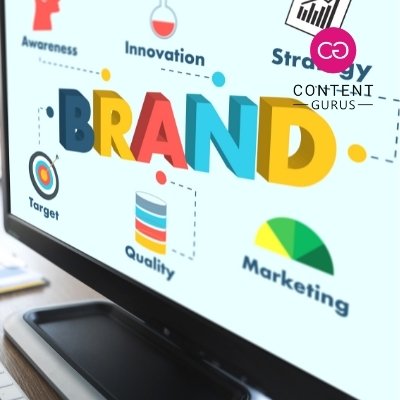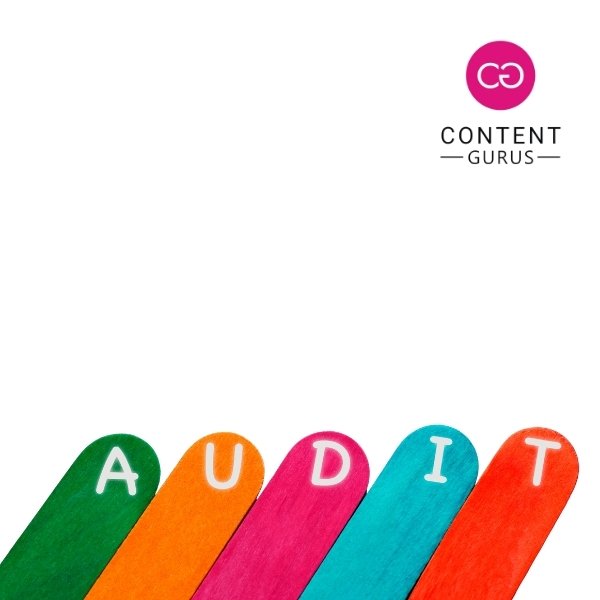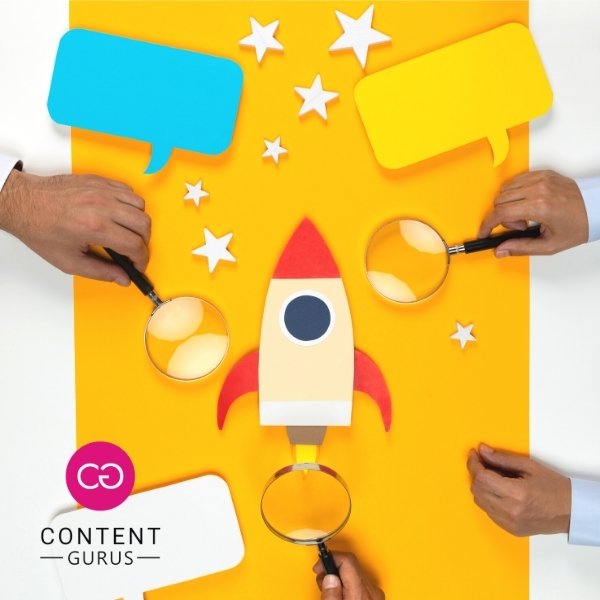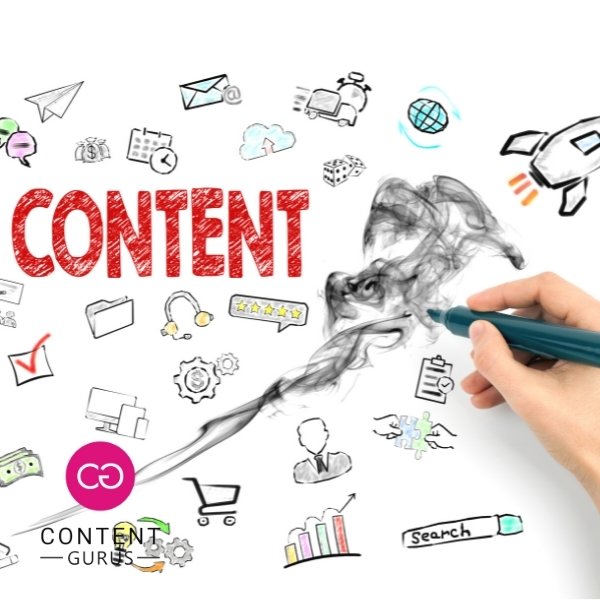What, Exactly, Is Content Marketing?
Content Marketing is an imperative part of any marketing strategy that is geared toward creating and distributing relevant, quality content. Your reward for implementing a well planned and executed Content Marketing strategy, or Content Management protocol, is that you are able to establish and grow relationships with potential and existing customers, who are also called your audience. A relationship that is built and based on trust. Not because you tell them to trust you BUT because you show them, through the use of your content, that you are trustworthy.
But how? I hear you ask.
It is really quite simple when you come down to the crux of the matter… When you create value for your reader by sharing knowledge, with the use of your Content Marketing efforts, and ask for nothing in return, your reader is more inclined to trust your recommendations and knowledge.
When a Content Marketing campaign is done correctly, the customer does not feel like a traditional customer but rather a partner. What makes this important is that a partner has a vested interest in the success of the business.
Keeping that in mind, we decided it was time to research the most asked questions when people want to know more about Content Marketing, and put the questions and answers in one place for you. Don’t tell me I never give you anything.

What Is The Content Marketing Process?
The Content Marketing process can be challenging as it involves juggling many balls in the air that are synchronised for success.
To achieve success and produce a measurable ROI (Return On Investment) you have to develop a detailed understanding of the Content Marketing Process:
- Audience Research
- Create Buyer Persona
- Map Customer Journey
- Competitor Research
- Setting Goals
- Lead Generation
- Setting KPIs (Key Performance Indicators) ie.
- Brand Awareness
- Leads
- Keyword Research
- Content Planning
- Create Content Calendar
- Blogging
- Graphic Design
- Web Design And Development
- Tracking And Data Analysis
Is Content Marketing Still Important For My Business?
Yes, it absolutely is. This is backed up by what some of the leading Marketers in the world have to say about their Content Marketing strategy going forward:
- 60% of the most successful B2B marketers have a documented Content Marketing strategy (Content Marketing Institute – CMI)
- 60 % of marketers agree that Content Marketing generates demand OR leads (CMI)
- 70% of marketers say that their top SEO strategy is targeting strategic keywords (CMI)
- 69% of marketers invest time in SEO (HubSpot)
- 83% of marketers are either ‘very confident’ or ‘somewhat confident’ that their website is helping them reach their marketing goals (HubSpot)
- 60% of marketers agree that Content Marketing builds loyalty with existing clients/customers (CMI)
- Although 32% of respondents said that they were overwhelmed by the amount of content available, the majority of that group admitted that they typically consume three to five pieces of content before engaging with a business (DemandGen)
- 81% of marketers view content as a core business strategy (CMI)
- Content Marketing generates over 3 times as many leads as outbound marketing and costs up to 62% less (Demand Metric)
- The top 3 reasons for creating content are to boost sales, build relationships with customers and increase brand awareness (eMarketer)
- 70% of people prefer to get their information from content (ie. Blogs) than traditional advertisements (Demand Metric)
- How-to articles are the most popular content formats at 77%. News and Trends follow this at 49%, and then Guides and Ebooks at 47% (Statista)
- 90.63% of web pages get NO organic search traffic from Google (Ahrefs)
* Links at the bottom of the page

What Are The Different Types Of Content Marketing?
There are various types of content that can be created to build the trust relationship with your readers. Ultimately, the kind of content you create does have an impact on your content marketing efforts and your audience. These include:
- Blogs
- Landing Pages
- eBooks
- Whitepapers
- Newsletters
- Social Media Posts
- Email Marketing
- Infographics
- Case Studies
- How-to Guides
- PPC
- Videos
- Checklists
- Opinion Posts
- Templates
- Interviews
Who is your audience? Your audience is the people who would notice if you stopped all your content marketing efforts right now. They are the people who would call and tell you that they missed your weekly email newsletter, your white papers or Facebook posts. Your audience is NOT your marketing database. |
Why Is Content Marketing Important?
Content Marketing is important because it has repeatedly been proven to work, becoming the ‘uber tool’ in the digital marketing toolkit. Creating engaging, quality content, on a consistent basis, influences readers’ decision-making more than any other marketing technique by:
- Giving your brand credibility
- Building trust with the reader
- Strengthening your reputation
10 Benefits Of Content Marketing
There are many benefits to Content Marketing but, to preserve your sanity, we will only focus on 10 of them:
- Audience Retention
- Social Media Traction
- Quality Lead Generation
- Builds A Trust Relationship with your Audience
- Improve Conversion Rates
- SEO Impact
- Brand Awareness
- Brand Credibility
- Development Of Brand Fans
- Cost-Effective
Content Marketing in Cape Town • Content Marketing in South Africa • Best Content Marketing Company • Products or Services • Content Agency • Digital Marketing Agencies

How Does Content Marketing Help SEO?
If your Content Marketing efforts can produce consistent, quality content it will benefit your SEO by increasing your business’s online visibility and authority/credibility, or Brand Awareness, with your audience. When this Brand Awareness is combined with a well-developed content strategy it should assist you to a higher ranking on search engines.
This statement is backed up by the fact that more than 80% of marketers rate Content Marketing as a top priority for, among other reasons, SEO purposes (State of Inbound Report).
What’s The Big Deal About Brand Awareness?
Brand Awareness drives decision making with consumers when they differentiate between competing companies. This translates to, people preferring to spend their hard-earned money on a brand they at least know about.
- Fosters Trust
- Creates Association
- Builds Brand Equity
Fosters Trust
As soon as a customer ‘bonds’ with your brand, they are more inclined to purchase from you again without any forethought. By giving your brand a ‘personality’, your audience will be more inclined to trust it. Remember this – Consumers do not spend money with brands they do not trust.
Creates Association
When you want to find a quick answer to a question, you Google it right? Why don’t you Search Engine it? Simple, Google is the brand most people associate with search engines. Brand awareness is what makes the consumer associate an action or product with a particular brand by, subconsciously, encouraging the consumer to replace a commonly used word, or words, with a specific brand.

Builds Brand Equity
Brand equity boils down to the value of the brand. The value of a brand is determined by consumer experiences and perception of the brand. It is as simple as:
Positive Experience = Positive Brand Equity
However, it is important to remember that the negative also applies!
By building brand awareness and promoting positive customer experiences, with the brand, you increase the brand equity.
By maintaining a consistent brand message, you will foster trust, create association and build your brand equity. All of this will keep your business top-of-mind when your audience is comparing you to your competitors. Brand Awareness should be thought of as one of the steps toward driving profitable action, which is the goal of Content Marketing.
What Constitutes As Profitable Action?
Profitable action has to be useful and measurable and for this to be helpful, your Content Marketing goals need to be specific. According to CMI founder, Joe Pulizzi, businesses care about three things:
- Sales
- Savings
- Sunshine (client loyalty, retention, cross-sales and evangelism)
What To Consider When Setting Your Content Marketing Goals?
- Subscribers
- Leads
- Sales Enablement/Support
- Customer Support And Loyalty
Subscribers
The basis of Content Marketing is building a subscribed audience. Your audience gives you their contact information and agrees to receive communication from you. This communication gives you the opportunity to market your business and products to them subtly while also providing them with valuable information outside of your products or services.
When you want your business to compete with a high-profile or well-established business, you want to penetrate a new market or start your Content Marketing journey. You are able to measure the progress by the number of subscribers you get to your owned channels.
What Are Owned Channels?
Owned channels are any online channels that are owned and controlled by your business. These could include:
- Website
- Blog
- Social Media Channels
- Email Newsletter
- Podcast
- Magazine
Leads
Some companies define leads as contacts. Whether leads or contacts, you will only be able to get these with the help of quality content. Once a consumers approves of your content they become leads by registering for an event, requesting access to resources or signing up for a demo. Why is this different to a subscriber? Simple, a lead will provide you with more information than a subscriber due to the value they see in what you are offering.
You should set lead-related goals if you are looking to use Content Marketing as a tool to assist your sales team in finding new, qualified customers. The way you would measure this goal is to track downloads, form and landing page conversion rates and the percentage of marketing-and-sales-qualified-leads.
Sales Enablement/Support
Sales enablement is when you provide content that offers proof points that assist your audience to choose to support your business. Case studies and testimonials are what we are talking about here.
Basically, you are showing your potential customer how a previous customer dealt with a similar problem/situation. This is a valuable area of focus when you want to open up to a new revenue stream or you need to grow sales. It can be measured through lead-to-customer conversion rates, revenue generated or time to close new customers.
Customer Support And Loyalty
Using content as a tool to ensure that your customers get value from their purchases, ensures that they are more likely to support your business again. This is done, very effectively, with activation and How-To content and should be a focus when:
- Your business struggles to get repeat business
- Upselling products and add-ons are a priority
- To reduce support related costs
Churn rate = The annual percentage rate at which customers stop subscribing to a service. |
What Goal Setting Frameworks Should I Use?
You understand that goals are part of every aspect of a business. Goals provide a clear focus, sense of direction, motivation and clarify importance. When you set goals, you are ensuring that you have a target to aim for.
When it comes to Content Marketing we suggest a combination of two frameworks – SMART and FAST.
SMART Framework
SMART is an acronym for:
- Specific – Well defined, unambiguous and clear
- Measurable – Specific criteria to measure progress
- Achievable – Attainable
- Realistic – Within reach and relevant
- Timely – Clearly defined timeline (including a start and completion date)
FAST Framework
According to the authors of an article from MIT Sloan, there is a better way and it is FAST.
FAST is an acronym for:
- Frequently discussed – To keep focus and correct course when required
- Ambitious – Promote innovative ideas
- Specific – Include milestones and metrics
- Transparent – Ensures that everyone understands and coordinates each other’s needs and goals
These frameworks are complementary to each other and can easily be blended for any Content Marketing goal-achieving plan. However, ensure that you set goals that are tied to the business outcome and talk about them in a way that guarantees that your business leaders care.
Why? Because Content Marketing programs stop because the people, who make financial decisions and control the budget, don’t understand why you are focusing on Content Marketing and the impact it could, and should, have on your business.
Is Content Marketing Expensive?
No, not when it is compared to traditional marketing strategies. When taking that into account, Content Marketing is truly the most cost-effective marketing strategy by a country mile. Yes, the initial costs may be high, however, the long-term ROI more than makes up for this.
What Are The Hidden Costs In Content Marketing?
To create quality content you have to make use of skilled professionals who have a host of sophisticated tools in their arsenal from start to finish.
If you want to consider having an in-house content team, you need to understand some of the hidden costs that will drive Brenda from accounting to ‘drink and bad men’:
Content Audit
It makes no difference if you are updating your existing content or starting from scratch, you need to audit what you have done to date:
- Website Audit
- Social Media Audit
- Data Analysis
As is often the case, there are free tools available for you to use. However, the free tools do not provide detailed and, sometimes, vital information that comes from reputable, paid platforms.

Research

Content Marketing is impossible without research. It is the cornerstone of an effective and successful Content Marketing strategy.
To conduct thorough and successful research is time-consuming work but when done right – priceless!
Some of the paid tools you could use are:
- Keyword Explorer by Ahrefs
- SEMrush
- Moz Keyword Explorer
- KWFinder
Strategy And Planning
From listing content ideas to mapping the buyer’s journey, you will be required to make use of specialised tools. Creating an editorial calendar, content calendar and playbook is also included under this.
Web Development
For a content strategy to be implemented, you will need to have, at the very least, a blog. The costs that are associated with this include:
- Domain registration
- Hosting
- Plugins and themes
- Developer
Graphic Design
You may think you are a creative genius but when it comes to visual content – leave it to the professionals.
Content Writing
Finding the right writing team takes time and when you do, make sure you don’t lose them due to not being renumerated fairly. Skilled content writers are not cheap. There are also various tools that they will need access to do their job to the best of their ability.

Audio Production

Want to include a podcast in your content strategy? Then buckle up Buttercup. Some of the costs involved could include:
- Studio rentals
- Recording and editing software
- Podcast equipment
- Host (If you should decide that you would rather not be the host)
Video Production
When it comes to producing quality video content you are going to have to spend and not just a little bit…
- Pre-production
- Scriptwriting
- Storyboarding
- Production
- Studio rentals
- Crew
- Actors
- Costume
- Hair and makeup
- Camera equipment
- Lighting equipment
- Sound equipment
- Post-production
- Editing software
- Dubbing

To be fair, when it comes to video production for content purposes all is not lost. Not all businesses are in ‘professional video production’ league, and in my humble opinion, it is better to get the content online than not at all. Especially if cost is the main reason for not producing it.
Grab your phone, experiment with lighting and sound, get your ‘set’ ready and go for gold!
Web Development
No, this is not a mistake and, yup, you will need help from a web developer once again. This time they will need to focus on:
- Site architecture and navigation
- Site speed
- Mobile responsiveness
- Schema markup
- On-page SEO
- Off-page SEO
- Technical SEO
All of these functions require the use of the correct tools and in the end, they all add up to a pretty penny.

Content Promotion

There is no doubt about it… Paid distribution channels will get your content to your target audience. Some of these paid channels include:
- PPC
- Display Adverts
- Social Media Advertising
- Sponsored Content
Content Distribution
You will have to pay your staff to spend a lot of time sharing and promoting your content, across multiple channels manually OR you could use one of the following Content Distribution tools available to you:
Project Management
It depends on the size of your content team, but acquiring a good project management tool could see Brenda from accounting hyperventilating in the corner of her office while rocking back and forth trying to self-soothe.
Monitoring
There are paid tools you can use to monitor your content and aid with reporting to understand the data.

How do you avoid these, vital but hidden costs? You don’t. You can’t get away from the fact that you will need to budget for the execution of your content strategy. This is where you need to decide, if it would not suit you better, to hire a Content Marketing agency to take control of all your Content Marketing requirements.
A Content Marketing agency, not only has a dedicated team of experts handling your content but also has access to all the sophisticated tools and resources needed to do so professionally. This will save you, not only money but time too.
Brenda’s family will thank you for saving her sanity too.
How Does Content Improve Conversions?
Okay, by now, you understand that content does influence conversions, however, you may be asking – but HOW does it improve conversions?
Content helps your audience connect with your business and brand while they gather the information they need to make an educated purchase. This is why including CTAs (Call To Action) throughout your content is vitally important as it shows your reader what their next step should be.
Is Marketing Possible Without Content?
No, in this day and age, it is not possible to have a marketing strategy that does not include content. Consistent, quality content is, and should be, part of all forms of marketing:
- Inbound
It is vital to have content that drives inbound traffic and leads
- Content Strategy
Should be part of most marketing strategies
- Social Media
Your Content Marketing strategy always comes before your social media strategy
- SEO
Your business is rewarded by search engines when you consistently publish quality content
- PPC
PPC will only work if you have good content to back it up
- PR
Address issues that your audience cares about and that are relevant

Are Content Marketing Budgets Increasing?
Yes. According to the Content Marketing Institute (CMI), companies are showing their commitment to Content Marketing by increasing their Content Marketing spend.
Of the marketers that are familiar with their company’s spending and took part in the study, they found that:
- 66% expect their 2022 budget to increase
- One in five of the above 66% indicated that the increase will be more than 9%
- 50% outsourced some content marketing to an agency
- 40% indicated budget being a concern when outsourcing – down from 50% a year ago
- 75% of large companies outsource their content marketing completely – up from 61% a year ago
How Did COVID-19 Change Content Marketing?

When the pandemic hit we were all in the same boat. Scrambling to ‘set up shop’ at home while trying to figure out what our new normal was going to be.
Marketing departments were also trying to figure out what the messaging was going to be; if any. Endless Zoom meetings and phone calls later, many posed the question, “Is it right to market our business when the world is going to hell in a handbasket?”
The answer was obviously yes, however, the messaging did have to change, with a more considered and empathetic approach being vital. The pandemic hit people hard and it was necessary to employ more empathy and less hard-sell. The companies that did just that, were in a stronger position once the world started returning to ‘normal’.
Content Marketing is about telling great stories. Stories that inspire, engage, entertain and answer questions. When done well, these stories can help your business reach a level that you did not think possible.
“Our attention will always go to those who tell great stories.” – Neil Patel
Neil Patel (New York Times Bestselling author, The Wall Street Journal Top Influencer on the Web, Forbes Top 10 Marketers, Top 100 Entrepreneurs Under 30 awarded by President Obama and United Nations Top 100 Entrepreneur Under the Age of 35)
